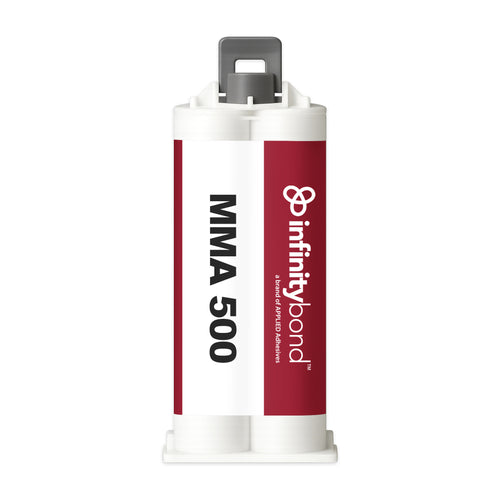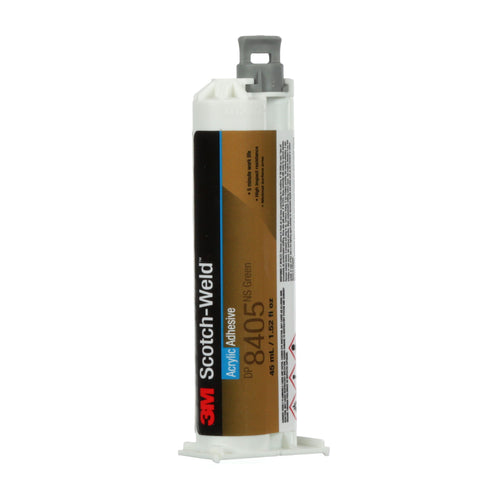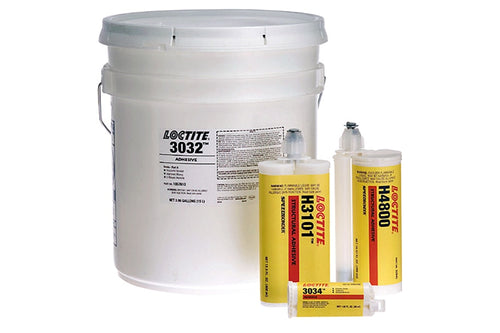Methyl Methacrylate Adhesives - MMAs
Find the Right MMA Adhesive for Your Application
Methyl methacrylate adhesives, also sometimes called methacrylate adhesives or just MMAs, are great for strong, structural bonds. These two-part adhesives are mixed together using a cartridge glue gun or meter mix equipment.
Because of their great strength, MMA glue can be used in a wide range of assembly and manufacturing applications. They can often replace welding, bolts, or rivets to provide a faster, lighter way to marry substrates. MMA adhesives also provide excellent resistance to chemicals, vibrations, and heat. Unlike many other adhesives, methyl methacrylate adhesives require minimal surface preparation.
Ask a question about Methyl Methacrylate Adhesives - MMAs
Questions about these products? Not sure which is right for your application? Submit your questions and our adhesive experts will get you answers right away. We're here to help.
Related Categories
Common Questions About Methyl Methacrylate Adhesives - MMAs
Compared to other products like cyanoacrylates, epoxies, and polyurethanes, methyl methacrylate adhesives are relatively new. They are structural adhesives that consist of an adhesive resin component made of methacrylate monomers and amines mixed with additional toughening agents and rubbers. The other component of methyl methacrylate adhesives is a peroxide-based activator paste. When the two are mixed, the components will cure and create a strong bond.
Methyl methacrylate glues are two-part adhesives. When the two components are mixed, the amines react with the peroxides to release reactive free radicals. These free radicals then interact with a double bond found in the methacrylate monomers resulting in a rapid, exothermic polymerization reaction and the curing of the adhesive.
Unlike other structural adhesives, MMA adhesives work well when bonding dissimilar materials such as flexible plastic and rigid metal. They combine exceptional flexibility with high strength to form bonds that are extremely durable yet flexible enough to work well for dissimilar surfaces. The fast exothermic reaction means that the time between curing and fixture is short, making these structural adhesives ideal for fast-paced environments.
MMA glues can be beneficial for many reasons including:
- High tension strength
- No primer needed
- Excellent impact and peel strength
- Varying cure times
- High toughness and flexibility
- Room temperature curing
- Good flexibility at low temperatures
- Minimal bond shrinkage
- Less surface preparation
- Very high resistance to fatigue
- Ability to bond a wide range of materials together
- Tolerant of off-ratio mixing
- Ability to fill large gaps
- Resistance to solvents and weathering
- Easy application
- Tolerance of oily surface and other types of surface contamination
Methyl methacrylate adhesives can be used to bond a variety of substrates including steel, stainless steel, aluminum, fiberglass, carbon fiber, unsaturated polyester, vinyl ester, and much more. They are also commonly used with other thermoplastics like acrylics, acrylonitrile butadiene styrene (ABS), polycarbonates, and polyvinyl chloride (PVC).
Because of the diversity of these products, methacrylate glues are widely used for applications in the aerospace, automotive, construction, and marine industries. They cure quickly, so they can also be great for production lines.






























